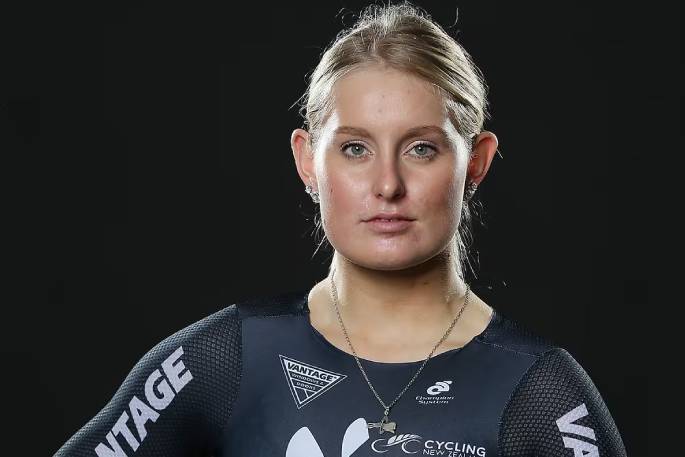- This story discusses mental health and suicide. A list of helplines is available at the bottom of the page.
The head of High Performance Sport NZ was warned in 2018 of concerns “we would have an athlete kill themselves” if the environment in Cycling NZ was not fixed, an inquest into the death of elite cyclist Olivia Podmore has heard.
The warning came from a senior doctor who had worked closely with athletes in the Cycling NZ high-performance programme.
The doctor told the Coroner’s Court in Hamilton on Friday that she met with former High Performance Sport NZ (HPSNZ) boss Michael Scott in June 2018 as the Government agency was preparing to launch an independent inquiry into Cycling NZ’s high-performance programme.
The inquiry was prompted by allegations of bullying, intimidation and an inappropriate coach-athlete relationship, which surfaced in the media following the abrupt departure of one of the coaching staff.
The allegations stemmed from an incident at a training camp in Bordeaux in 2016, just weeks out from the Rio Olympics, when Podmore inadvertently exposed an affair between a coach and an athlete. The court has heard evidence this week that Podmore endured “unrelenting bullying” in the aftermath of this incident.
On Friday the doctor, who has interim name suppression, characterised Podmore’s experiences during this time as “psychological abuse”.
The doctor, who left the Cycling NZ environment in 2017 as she herself had begun to feel “unsafe”, said she contacted Scott because she never felt that she had a proper, formal exit interview when she left and had not “got her concerns across well enough”.
In her statement to the Coroner’s Court, the health practitioner said she told Scott “athletes were at risk”.
“I told Michael Scott that I thought there were athletes at risk and that if we didn’t fix the environment in Cycling NZ, I was concerned that we would have an athlete that would kill themselves,” the doctor’s brief of evidence states.
“I was in a position then, having left the environment and having had a lot of time to reflect, that the whole period following Bordeaux and Rio was so much worse than I had thought at the time. I thought it was bad, but it wasn’t until I left Cycling NZ that I realised how bad it really was.”
The medical practitioner said her view was not based on “any formal assessment or recent knowledge I had about those athletes”, but rather a “gut instinct” based on the significant stress she could see the incident had placed on athletes and staff.
On Friday, the doctor told the inquest that she told Scott that if leaders did not properly act on the findings of the inquiry, which was still in the process of being instigated at that point, “we could lose someone”.
“At that stage we were talking about athletes, but it could have been a staff member as well,” she added.
The doctor said Scott was extremely responsive to her concerns, and immediately put her in touch with Mike Heron, who had been commissioned to lead the independent inquiry.
The health practitioner said she spoke to Heron twice for the 2018 review, and also fed into the 2021 independent inquiry following Podmore’s death in August that year.
“I’ve now met with Michael Heron three times,” she said.
“When I met with him in 2021, he noted, ‘You raised quite a few of these concerns in our first interview’.”
‘Significant breach’ in safeguarding
The doctor, who was at the Bordeaux camp that triggered the faultline in the programme, said the incident had a clear impact on Podmore’s Rio Olympic campaign.
She told the court that she felt a lot of “the panic and emotion” displayed by Podmore at the Olympics was a result of what she experienced in the build-up.
“To me it felt incredibly significant that she was made to feel quite unsafe by what happened and I was really concerned that for someone so young to be … thrown into the middle of something that she genuinely had no idea of, right before her first Olympic Games.
“To me, the flow-on effect [in Rio], so much of it could be attributed to how confusing and how traumatising she seemed to be finding her place in the team and how to navigate that.”
The doctor said at that point she believed the conduct issues from the coach in both Bordeaux and Rio were so serious that Cycling NZ would have no choice but to act when the team returned from Rio.
“I admit I reassured Olivia things would be different post-Rio, because I felt this was a significant breach in terms of safeguarding,” she said.
The doctor said she participated in the Rio debrief process and was interviewed by another senior health practitioner, along with HPSNZ general manager Eddie Kohlhase, and “did not leave anything unspoken”.
After leaving the cycling programme in 2017, the doctor said she did not have any further contact with Podmore in a clinical setting before her death, but kept in touch with the talented young cyclist.
While she had no direct knowledge of Podmore’s challenges in the lead-up to the Tokyo Olympic Games, the doctor said the impact on Podmore of not being selected for Tokyo would have been “devastating”.
“Especially after having a really hard Rio experience, to then not be able to come out and rectify some of those things is very hard. It’s very hard to not go out on your terms,” she said.
The doctor told the court she had been encouraged by shifting attitudes to athlete welfare during her time in the system.
She highlighted a recent workshop she took part in with up-and-coming coaches, describing the process as “healing”.
“It just felt amazing to me actually, that we were sitting there talking about how to keep athletes safe.”
-By Dana Johannsen of RNZ



0 comments
Leave a Comment
You must be logged in to make a comment.